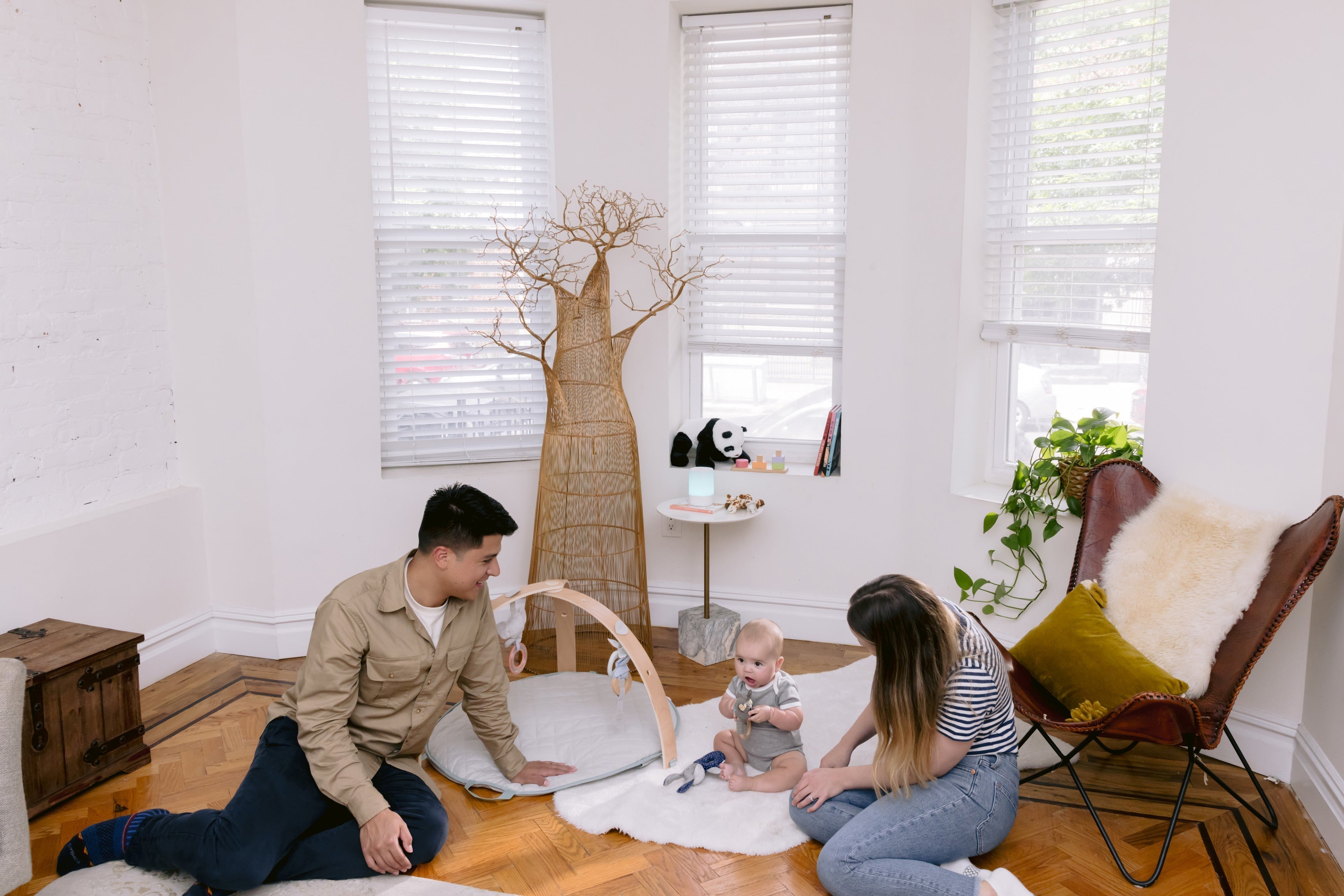At Nanit, we regularly study a wide range of parenting topics including sleep, feeding, teething, postpartum wellness, maternal and paternal leave, sex health and more. Through this research important trends have emerged. One trend that we’ve been seeing come up again and again: How confident parents feel, and what makes parents feel more—or less—confident.
As we started to dig deeper into the topic, we saw confidence as a trend not just in our own research but in the larger world as well. If you’ve found yourself googling these questions at 3am, you’re not alone:
- How can I be a confident parent?
- Why is confidence important in parenting?
- Which parenting style is best for self-esteem?
- How do parents affect your confidence?
In our Nanit Lab research, several recurring themes appear to have significant influence on how confident parents feel. To highlight these important findings in the hopes that they might open up solutions for families and inspire change and progress, we created our recent report, The State of Parental Confidence 2024.
“We wanted to understand parental confidence more and understand how we could improve it,” says Dr. Natalie Barnett, VP of Clinical Research at Nanit. “How do we make parents feel even more confident? The goal is to help them feel supported and come from a place that is as nonjudgmental as possible. We want to consistently provide science-backed tips, recommendations and information so parents can absorb as much info as possible and make decisions for their families in a confident way.”
Find out what we learned.
Pillars of Parental Confidence
As parents, you want to feel like you know what you’re doing, strong and sturdy about your choices, and capable in your actions. But what makes you sometimes able to stay calm in the face of a toddler tantrum, and other times crumple over a missed nap? Our research revealed several common categories or issues that seem to play a big role in how confident a parent feels. These issues range from more personal ones—like how you think about and take care of yourself—to large-scale ones, systemic challenges and lack of support. And one connecting factor, that impacted confidence and parents’ wellbeing, across every category? Lack of sleep.
In order to improve parents’ overall well-being, we learned that it helps to pay attention to four main concerns:
Physical well-being
What it means: Physical well-being looks at how parents feel physically, including things like how much sleep you get, how well you’re able to heal and be supported postpartum, and how well you take care of yourself and take time for yourself.
PMADs or Postpartum Anxiety and Depression
What it means: PMAD can affect both moms and dads. In fact, 43 percent of the parents surveyed by Nanit expressed feeling anxious and/or depressed since becoming parents. Common PMAD symptoms are feeling anxious or panicky and having trouble sleeping. And dads are less likely than moms to notice their symptoms. “Dad’s lives change hugely after they become parents, but not many people talk about that,” says Dr. Natalie. “Dads aren’t encouraged in general to take parental leave in the way that moms are. Dads are expected to go about their lives as usual and it can be hard for them to ask for help.”
Self-Doubt
What it means: This creeps in for parents who are isolated or feel inexperienced and can come from comparing yourself to others or feeling pressure from others to be or do things in a certain way. “It can be very isolating,” says Dr. Natalie, “when you’re scrolling social media in the middle of night during a feeding, for example. You can wind up feeling very much alone. At Nanit, we want to provide a platform so people can be hearing from other parents and experts and understanding that our whole ecosystem is there to support them.”
Systemic Support
What it means: Some parents face uphill battles when dealing with issues like a lack of parental leave, adequate childcare, or other inequalities. From a recent study of Nanit parents, we see that moms are twice as likely to get no paid leave after having a baby as dads (20 percent versus. 10 percent), only 8 percent of parents are eligible for 20 or more weeks of leave and 93 percent of parents feel stressed about returning to work. Parents are worried about managing sleep (or the lack of it) and the chaos going back to work may bring to the family.

What Nanit Teaches You About Your Baby
Dr. Aliza Pressman Talks Parenting, Perfection and When Stress Can Be Good